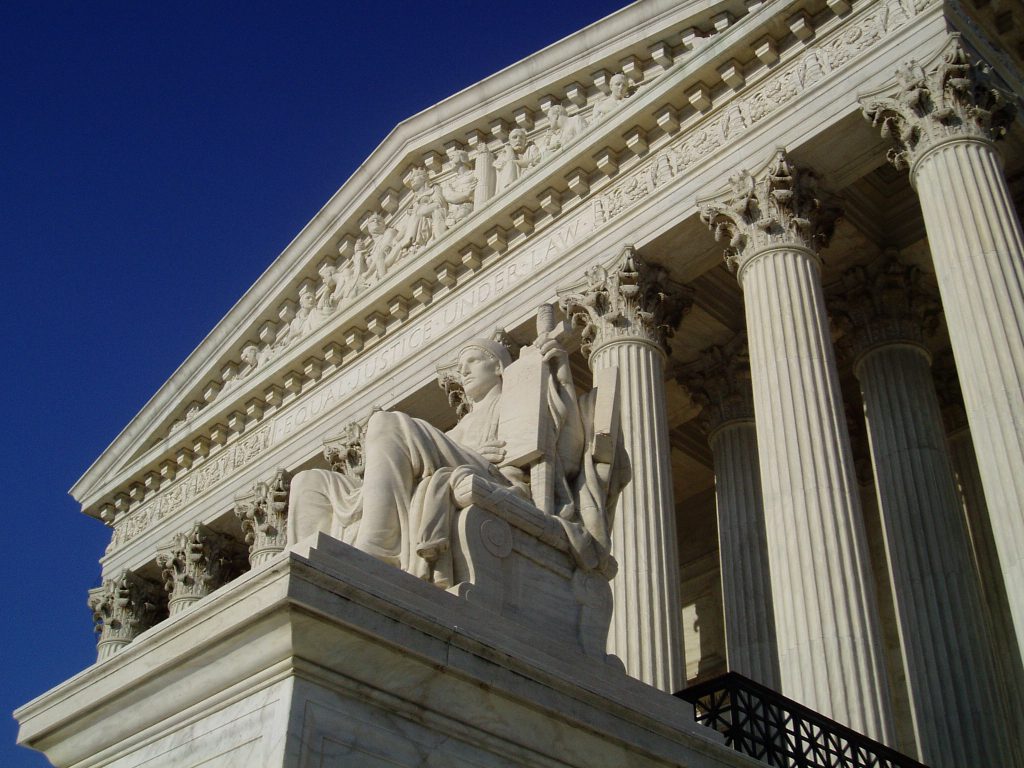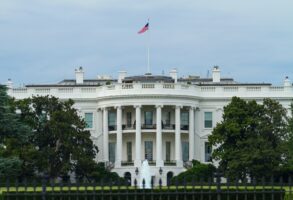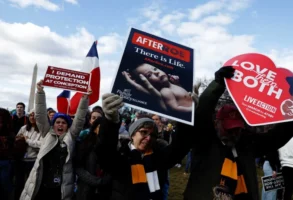
Published July 13, 2020
Writing at Public Discourse, Ryan Anderson makes a compelling case that, even as we celebrate a few welcome wins for religious liberty at the Supreme Court, we still need to address the substantive questions at the heart of our culture-war debates.
It’s an important point, and one I considered in a post right after the Court’s incomprehensible ruling in Bostock last month. That decision, I argued, illustrated why it’s a problem that religious Americans too often have retreated into defending religious-freedom rights rather than defending our beliefs themselves. Religious liberty is a fundamental right worth protecting, of course, but fighting for the right to practice one’s faith is not the same as making the case for why doing so, especially in the realm of sexual ethics, is not bigotry or discrimination, as many on the Left increasingly maintain.
Take, for example, the case of the Christian baker Jack Phillips. Arguing that he has a First Amendment right not to be forced to use his artistic expression to celebrate a same-sex wedding is one thing, and it’s all well and good as far as it goes. But defending the rationality of his belief in marriage as, by its very nature, a union between one man and one woman is another, equally important effort. Although there is obvious value in a legal defense that relies on the First Amendment, religious Americans outside the courtroom should’ve focused far more than they did on arguing not only that Phillips has a right to free exercise and free expression but also that his belief in traditional marriage isn’t bigoted and that it isn’t discrimination on the basis of sexual orientation to decline to celebrate a same-sex wedding ceremony.
It isn’t difficult to see why focusing on the latter arguments would be preferable, not only for religious Americans but also for Americans who hold similar beliefs about marriage, gender, and sexuality but who are not religious. Relying on free-exercise arguments excludes those Americans and seems to concede that religious liberty is nothing more than a cover for bigotry or, as the social-justice Left puts it, “license to discriminate.” Ryan makes this point ably in his new article:
Religious liberty, after all, doesn’t protect people who aren’t religious but reject progressive gender ideology. It doesn’t protect other goods and interests threatened by progressive gender ideology. And it doesn’t respond on the merits to the underlying disputed questions of truth. We need a more holistic response in terms of legislation and litigation to protect all people and all the various goods and interests at stake. We need to contend about the truth of the matter.
While religious Americans might be able to achieve small victories around the edges by relying on the First Amendment to protect us within our small spheres, we will continue losing the cultural battle in the long run if we decline to defend our beliefs on their own terms.
Consider the Supreme Court ruling last week in Little Sisters of the Poor v. Pennsylvania et al. While the Court ruled in favor of the Trump administration’s authority to grant religious and conscience exemptions to the HHS contraception mandate, it sidestepped both the religious-freedom debate and the debate over the supposed right to subsidized birth control. In short, the Court’s majority punted, almost entirely ignoring the substantive questions involved in a legal fight that has stretched on for nearly a decade.
So while we might celebrate what amounts to a short-term win for the Little Sisters — or, more accurately, a near miss — the Court’s decision really wasn’t a significant victory in any important sense, as our own Andy McCarthy pointed out last week. For one thing, the Court failed to address whether the government has a compelling interest in subsidizing contraception or requiring employers to do so; there are excellent arguments that it does not, arguments that have nothing to do with religion or religious freedom. It also failed to address, as Justices Alito and Gorsuch pointed out in their concurrence, whether religious and moral exemptions are required by the Constitution and the Religious Freedom Restoration Act, rather than merely permissible if any given administration chooses to enact them.
The result is that the Little Sisters are forced back to the appeals court to defend themselves once again, where they are all but guaranteed to lose. And, going forward, these charitable nuns and countless religious groups like them will continue to be subject to the whims of each successive presidential administration. Joe Biden, it should be noted, already has promised to remove the religious exemptions currently in place to protect them. Meanwhile, non-religious Americans will have no hope of avoiding what is, at its root, a baseless policy requiring everyone to ratify the false notion that contraception is necessary health care.
There is no evading the fact that we live in a climate increasingly hostile to religious beliefs and traditional moral values, nowhere more so than in the realm of sex and gender. We do ourselves no favors by making arguments that appear to ask for special treatment on the grounds of religion rather than offering a vigorous defense of our beliefs on their own terms.
Alexandra DeSanctis is a staff writer for National Review and a visiting fellow at the Ethics and Public Policy Center.







